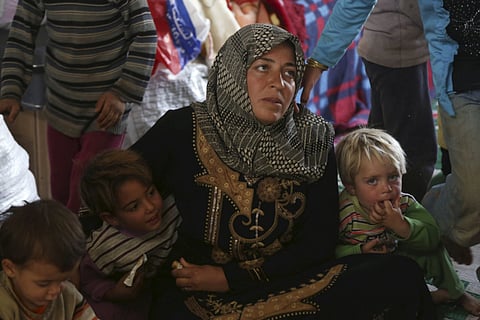The right to forget
It is time to let go and learn to forgive and forget

Perturbed and confounded by the ongoing calamities around the world, my mental capacity eroded by dire anger fails to absorb what’s happening. It is not the murderers that I am angry at and, it can’t be. For wrath, anger, hatred, grudge and fear do not apply when I think of their existence in my sphere.
Remembering Armenia, I deride those politicking the indiscriminate killing gratifying their instinct. I address the people, the human beings, with whom my sentiments and apprehensions conform. I reach to those who lost someone to the massacres and genocides and continue to tell the stories of brutal killings to their children and grand children so the frightening imageries stay alive. Those are the people I choose, and call to forget. I know that the reality of “forget” and move on may offend people’s sense of justice, but justice has re-enacted the game of see-saw repeatedly in history as peace, free-speech and right-to-forget is and will in the future.
Looking back at Lebanon between 1975 and 1990, a time in which the world may not know the true stories behind the genocides, and in most cases have been left to speculate on the identity of those responsible. But, history of all genocides can clearly identify the reasons as ethnic divisions upon which a society fractured and bled. Often, stories of mass killings get told in a context of “ancient hatred” but the truth is much uglier, and not ancient at all. The brutal ethnicity-based divisions was the reason to kill in the past, present and in the future.
This trend seems to be on the rise. Ethnicity and deadly divisions underlining the 21st century’s worst moments continue to doom and fuel the combustion of mass murders.
Now, going to Syria in 2013, we learn how to “never forget” and keep every speck of memory of atrocity alive, especially as it is rare for countries to recover from massive spasms of violence, especially if the conditions that sparked the violence don’t disappear. A future case of ethnic cleansing may seem like an extreme but as the next ones comes, such cases will become less and less theoretical. Post massive violence societies need a “how to remember” that a fire that was lit by hate speech, burned their countries, thus leaving behind millions of casualties, rather than a “will not forget” that has the potential to doom people based on ethnicity, religious choices or political affiliation. Of course, this is possible only if they want to achieve peace, even a post-national enlightenment. French historian Ernest Renan stated, “Nations are based as much on what the people jointly forget, as what they remember.”
— The reader is a Lebanese consultant based in Dubai


